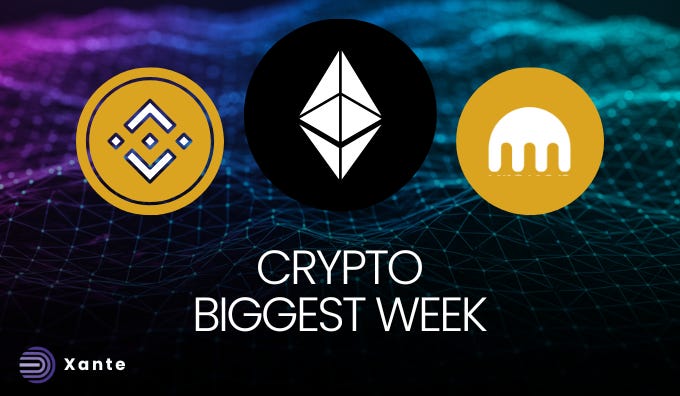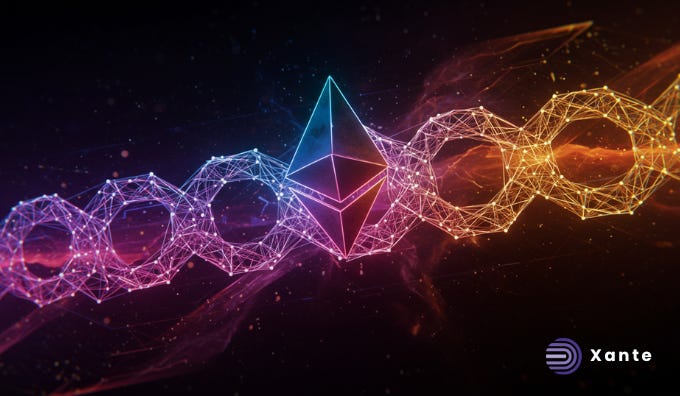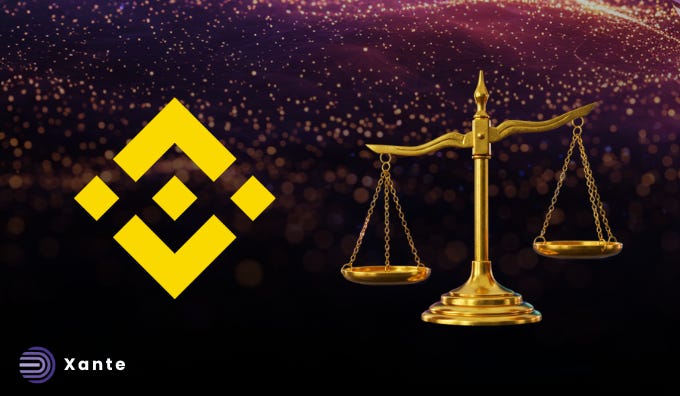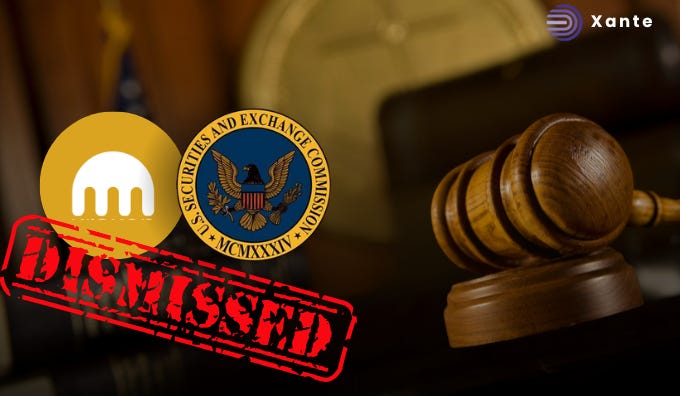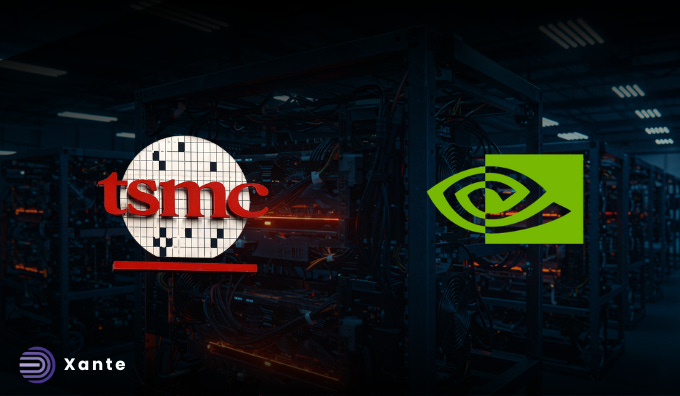Crypto’s Biggest Week: Ethereum’s Quantum Push, Binance’s Stablecoin Shock, and Kraken’s SEC Victory
Is crypto finally turning the corner?
This week has been a rollercoaster for the crypto industry, with massive regulatory shifts, institutional adoption, and a potential security revolution for Ethereum. From Binance’s stablecoin delisting to Kraken’s surprising SEC win, and Trump’s new tariffs shaking global markets, here’s everything you need to know.
Let’s break it all down.
Ethereum Gears Up for a Quantum Future
Ethereum is getting serious about quantum security. The Ethereum Foundation has thrown its support behind ZKnox, a project focused on post-quantum cryptography.
Why this matters:
Quantum computing is evolving fast, and when it reaches a certain threshold, it could theoretically break traditional cryptography, the backbone of blockchain security.
Real-world concern:
• Google’s Sycamore quantum processor has already demonstrated it can outperform classical computers in certain calculations.
• IBM and China’s Baidu are also making rapid strides in quantum research.
What this means for Ethereum:
• ZKnox will ensure that Ethereum remains secure even in a world where quantum computers can crack traditional cryptographic keys.
• This is crucial for long-term blockchain security and could set a new standard for Web3 resilience.
Binance to Delist Stablecoins in Europe: Is MiCA a Game Changer?
Nine stablecoins, including USDT & DAI, will be delisted in Europe by March 31 due to new MiCA (Markets in Crypto-Assets) regulations.
What’s MiCA, and why is this happening?
MiCA is the EU’s new regulatory framework designed to bring strict oversight to crypto, especially stablecoins. The key concerns?
Protecting investors
Reducing risks of bank runs
Preventing illicit financial flows
Potential impact on the market:
• Lower liquidity for traders in Europe
• More regulatory hurdles for stablecoin issuers
• Increased demand for MiCA-compliant stablecoins like Circle’s EUROC
Case Study: When Binance Delisted BUSD
In 2023, Binance stopped supporting BUSD after regulatory pressures. The stablecoin collapsed from a $16B market cap to just $1B, highlighting the real risks of regulatory crackdowns.
What’s next?
European traders will need to find alternative onramps, while MiCA could push stablecoin providers to restructure their compliance models.
Kraken’s SEC Victory: Is the Regulatory Tide Turning?
Kraken just announced that the SEC is dropping its lawsuit against them, a major win for crypto exchanges battling U.S. regulators.
Why this is a big deal:
• The SEC has aggressively targeted exchanges like Coinbase, Binance, and Kraken, accusing them of offering unregistered securities.
• The case dismissal suggests that regulators might be reassessing their approach toward crypto oversight.
Precedent for other lawsuits?
Coinbase and Binance are still fighting the SEC. Could Kraken’s case dismissal weaken the SEC’s position against them?
Case Study: Ripple vs. SEC
• In 2023, Ripple won a partial victory when a judge ruled that XRP wasn’t a security when sold on exchanges.
• This ruling set a precedent that could now benefit Kraken and others.
TSMC Commits $100B to U.S. Chip Manufacturing. What It Means for Crypto
Taiwanese semiconductor giant TSMC just announced a $100B investment in the U.S., reinforcing America’s push to dominate chip production.
Why crypto investors should care:
• AI & Crypto Mining: TSMC produces chips for NVIDIA and Bitcoin mining rigs.
• China vs. U.S. Tech War: This move reduces dependence on China, which has previously restricted chip exports.
• Boost for Web3 and AI: More chips mean faster computing power, benefiting on-chain AI applications like predictive trading models.
Example: AI-Driven Crypto Trading
Hedge funds like Two Sigma and Renaissance Technologies already use AI-powered models for crypto price prediction. Faster chips will only accelerate this trend.
Bybit’s $1.4B Hack; 83% Laundered via Thorchain
One of the biggest hacks in crypto history just got worse.
Bybit lost $1.4B in a security breach, and 83% of the stolen funds have now been laundered through Thorchain.
What this means for DeFi security:
• Thorchain allows decentralized swaps, making it harder to trace illicit funds.
• Regulators could use this as an excuse to crack down on DeFi protocols.
Example: Tornado Cash Sanctions
In 2022, the U.S. sanctioned Tornado Cash, citing its use in laundering over $7B in illicit funds. Could Thorchain be next?
Key Takeaways
• Ethereum is preparing for quantum security with ZKnox.
• Binance’s stablecoin delisting will shake up the European crypto market.
• Kraken’s SEC win could change regulatory battles for other exchanges.
• TSMC’s $100B investment will fuel AI, crypto mining, and Web3 innovation.
• Bybit’s $1.4B hack exposes serious flaws in DeFi security.
Future Outlook – What’s Next for Crypto?
Predictions for the coming months:
• Ethereum’s quantum security efforts could inspire similar moves by Bitcoin and Solana.
• MiCA regulations may push stablecoin providers toward centralized compliance models.
• The SEC could soften its stance on exchanges after Kraken’s case dismissal.
• Institutional crypto investment will continue to rise, especially in AI-driven trading.
Final Thoughts: How to stay ahead
Crypto is evolving fast, and staying informed is the key to navigating volatility.
Actionable Steps:
Track regulatory changes: Follow how MiCA and SEC cases develop.
Secure your assets: With hacks on the rise, consider hardware wallets and multi-sig setups.
Explore Web3 AI projects: AI-driven DeFi tools are growing fast.
For real-time market insights and smarter crypto decisions, explore Xanteapp; the all-in-one aggregator for trading, lending, and insights.
What’s your biggest takeaway from this week’s news? Let’s discuss this in the comments!
For daily updates, follow us on all socials; Instagram, Twitter, Telegram, and TikTok. Subscribe to our newsletter for expert analysis and join our WhatsApp channel to continue the conversation.
This article is for educational purposes only and should not be considered financial advice. Always conduct your own research (DYOR) before making any investment decisions.


